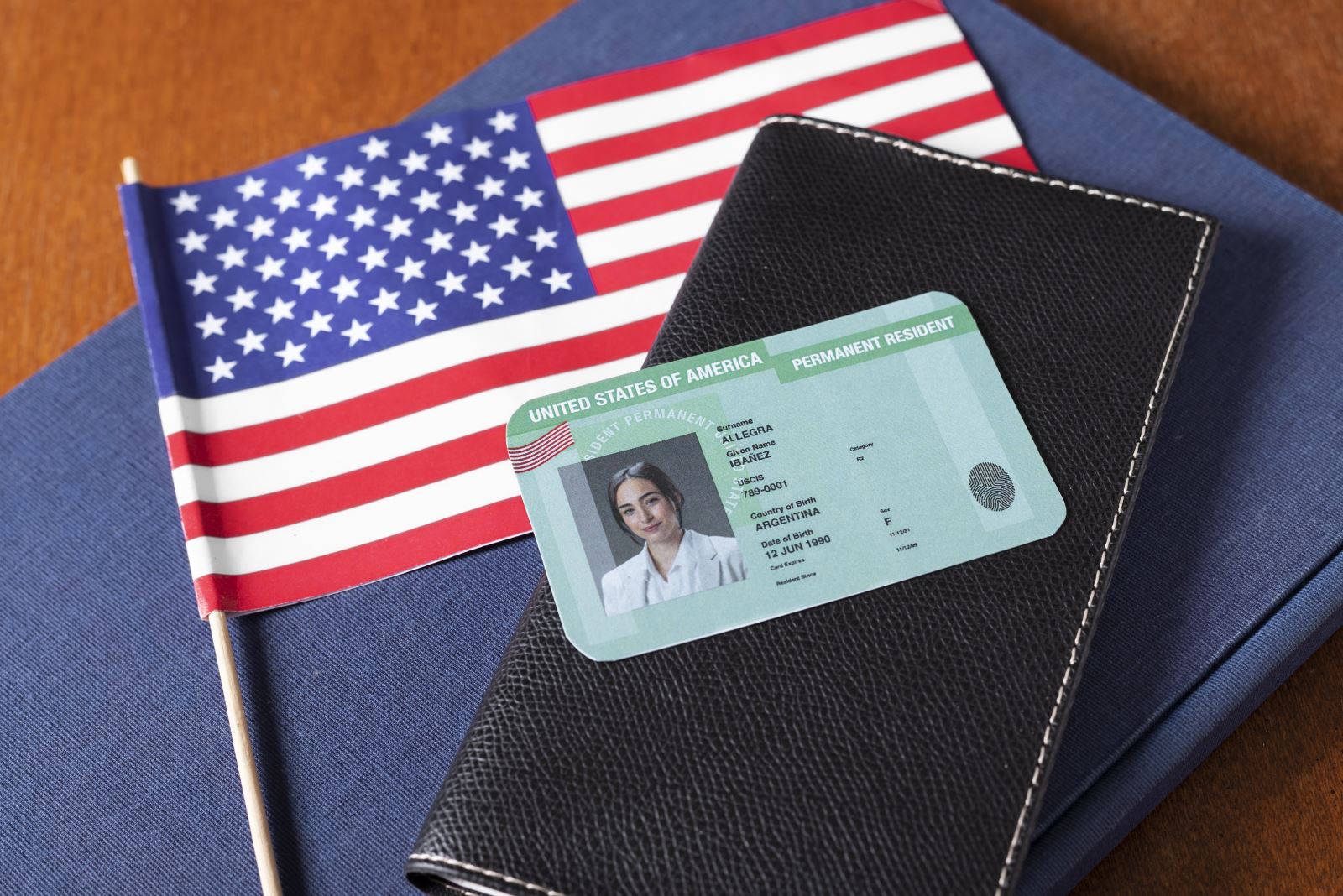Reaching the age of 21 is a milestone for many young adults in the United States. For many, the first thing that comes to mind might be the ability to legally enter liquor stores. :) For U.S.-born citizens, however, this age also opens a significant door in immigration law: the ability to petition for certain family members to become lawful permanent residents (LPRs) or Green Card holders. In this blog, we aim to explore the benefits and opportunities that 21-year-old or over U.S. citizens can offer their family members in the context of immigration law and to provide insights into navigating the complexities of U.S. immigration regulations. We hope you find it helpful.
Who Can a 21-Year-Old U.S. Citizen Petition For?
The first question to ask is this: who can they petition for? Yes, U.S. citizens who are 21 years old or older can petition for the following family members:
-
Immediate Relatives:
- Parents
- Spouse
- Unmarried children under 21 years old
-
Other Family Members (Preference Categories):
- Siblings (with longer wait times due to visa caps)
- Married children of any age
Immediate relatives enjoy priority processing and are not subject to annual visa caps, making this a significant advantage. The terms "immediate relatives" and "preference categories," frequently seen in immigration law texts, USCIS guidelines, and forms, now hopefully make more sense.
Green Card Through Your Child: Benefits for Parents of U.S. Citizens
Parents of U.S.-born citizens are considered immediate relatives, which means there are no annual numerical limits on immigrant visas for them. This priority status provides a streamlined pathway for parents to obtain lawful permanent residency.
Process Overview:
-
Filing Form I-130:
- The U.S. citizen must establish the parent-child relationship by filing Form I-130, Petition for Alien Relative. Supporting documentation such as the petitioner’s birth certificate, which lists the parents’ names, is crucial.
- Evidence proving the petitioner’s U.S. citizenship is also required, such as a passport or naturalization certificate.
-
Adjustment of Status (Form I-485) or Consular Processing:
- If the parent is already in the U.S. and entered legally, they can typically file Form I-485, Application to Register Permanent Residence or Adjust Status, concurrently with the I-130.
- For parents outside the U.S., consular processing involves attending an interview at a U.S. embassy or consulate in their home country after the I-130 is approved.
-
Medical Examination and Affidavit of Support:
- Parents must undergo a medical examination performed by a USCIS-approved physician.
- The U.S. citizen petitioner must submit Form I-864, Affidavit of Support, to demonstrate financial ability to support their parent and avoid the parent becoming a public charge.
Special Considerations:
- Parents with Unlawful Presence: If a parent accrued unlawful presence in the U.S., they might be subject to a bar on re-entry if they leave the country for consular processing. However, waivers are available in certain cases, such as through Form I-601A, Provisional Unlawful Presence Waiver.
- Parents with Prior Deportations: Parents who were previously deported may face additional challenges. Legal guidance is essential to determine eligibility for readmission or waivers.
- Public Charge Concerns: Although recent changes have softened the public charge rule, financial documentation remains a critical component of the application. Having a robust financial profile as a petitioner strengthens the case.
Key Advantages of Immediate Relative Status
- No Visa Caps: Unlike preference categories, immediate relatives are not subject to numerical limits. This eliminates wait times associated with visa availability, expediting the process.
- Concurrent Filing: In many cases, parents can file the I-485 concurrently with the I-130, significantly shortening the timeline to obtain a Green Card.
- Eligibility for Employment and Travel Authorization: Parents who file for adjustment of status may simultaneously apply for work and travel authorization, allowing them to work legally and travel while their Green Card application is pending.
Challenges
Parents who entered the U.S. unlawfully may face additional hurdles. However, exceptions like INA §245(i) may allow them to adjust their status if certain conditions are met, such as being the beneficiary of a petition filed before April 30, 2001. Additionally, the complexity of these cases underscores the importance of consulting an immigration attorney to avoid potential pitfalls.
Green Card Through Your Sibling
While siblings are not considered immediate relatives, a U.S. citizen can petition for them under the F4 family preference category. This category allows U.S. citizens to help their brothers and sisters immigrate to the United States, but the process can be lengthy due to strict visa caps.
Process Details:
-
Filing Form I-130:
- Establishing the sibling relationship with a valid birth certificate showing at least one common parent.
- Providing proof of U.S. citizenship.
-
Priority Dates:
- Sibling petitions are subject to annual numerical limits, and visa availability is determined by the priority date (the date the petition was filed). The wait time can vary drastically based on the petitioner’s country of origin. For instance, siblings from Mexico or the Philippines may face wait times exceeding 20 years.
-
Visa Bulletin Monitoring:
- It is essential to track the monthly visa bulletin published by the Department of State to know when a sibling’s priority date becomes current.
-
Consular Processing:
- Once a visa becomes available, the sibling undergoes consular processing in their home country, which includes an interview and medical examination.
Challenges and Considerations:
- Extended Wait Times: Unlike immediate relatives, siblings fall into the F4 preference category, which means their visa process is significantly longer.
- Age-Out Issues: If the sibling has children, these children must remain unmarried and under 21 to be included in the application as derivatives. The Child Status Protection Act (CSPA) may help prevent some children from aging out due to delays.
- Dual Intent Concerns: Siblings in the U.S. on nonimmigrant visas must be cautious about showing immigrant intent during the process.
For married children, the process falls under the F3 preference category, which also faces annual numerical caps. The timeline for F3 petitions is similarly lengthy, with wait times often exceeding a decade.
What About Spouses and Children?
A 21-year-old U.S. citizen can also petition for their spouse and unmarried children under 21, who are classified as immediate relatives. For married children, the process is slightly more complex and falls under the preference categories discussed above.
Exceptions and Special Considerations
- Unlawful Presence Waivers: If a family member has accrued unlawful presence in the U.S., they may require a waiver to adjust their status. A U.S. citizen can file a Form I-601A, Application for Provisional Unlawful Presence Waiver, to support their family member’s case.
- Public Charge Rule: As of 2021, the public charge rule has been significantly curtailed. Petitioners no longer face strict scrutiny over whether their family member is likely to become a public charge. However, petitioners must still submit Form I-864, Affidavit of Support, to demonstrate financial stability.
- Special Programs and Protections: Certain family members may benefit from unique protections or programs, such as Temporary Protected Status (TPS) or Deferred Action for Childhood Arrivals (DACA) adjustments if applicable.
Common Questions Answered
- Can a 21-year-old U.S. citizen petition for undocumented parents? Yes, but parents who entered the U.S. unlawfully may face barriers. If they cannot adjust their status within the U.S., they might need to leave the country and apply through consular processing, risking a bar on re-entry.
- How long does the process take? For immediate relatives, the process typically takes 6-12 months, depending on the case’s complexity and USCIS’s workload. For preference categories, the timeline varies significantly.
- Can petitioning for a parent lead to deportation risks? While filing a petition itself doesn’t trigger removal proceedings, undocumented parents should consult with an immigration attorney to evaluate risks based on their individual case.
Legal Foundations
Several key statutes and regulations govern family-based immigration, including:
- Immigration and Nationality Act (INA) §201(b): Defines immediate relatives and visa preference categories.
- INA §245(a):Covers adjustment of status for eligible applicants.
- 8 CFR §209: Details consular processing requirements.
Statistics: The Impact of Family-Based Immigration
Family-based immigration is a cornerstone of the U.S. immigration system. According to the Department of Homeland Security (DHS), family-based petitions accounted for approximately 65% of all immigrant visas issued in recent years.
- Parents of U.S. citizens: Around 20% of all family-based Green Cards.
- Siblings and other relatives: The remaining categories have more restricted numbers due to visa caps.
Practical Tips for Success
- Start Early: Immigration processes can be lengthy. Filing promptly after turning 21 ensures faster processing.
- Gather Comprehensive Documentation: Ensure all required evidence is accurate and complete to avoid delays or denials.
- Seek Legal Advice: Complex cases, particularly those involving undocumented family members, require professional guidance.
- Monitor Visa Bulletin Updates: For family members under preference categories, tracking visa availability is very important.
Conclusion
It may sound exaggerated to some, but certain nationalities—at least materially—are genuine assets. U.S. citizenship is a particularly significant one. One of the most important pathways this citizenship provides is lawful permanent residence or, as commonly known, the Green Card. A 21-year-old U.S.-born citizen holds a powerful tool to assist their family members in achieving lawful immigration status. By understanding the legal options, preparing thoroughly, and seeking professional advice when needed, these young adults can reunite their families and help them build a secure future in the United States. Whether it’s parents seeking a Green Card, siblings hoping to immigrate, or children joining their parents, the opportunities are vast—but the journey requires diligence and care.
If you or someone you know is in this situation, contact a qualified immigration attorney to explore the best path forward and make the most of this unique opportunity.
Need Support?
Onal Gallant & Partners PC is a law office specializing in Real Estate Law, Intellectual Property, Corporate and Business Law, Immigration Law, and the US Visa Processes. We deliver reliable advice on a large variety of subjects ranging from forming a corporation and buying a house in the US to trademark registration and Green Card applications (e.g., EB3 Visa or DV Lottery). With exceptional knowledge and insight into immigration law, our experienced lawyers at Onal Gallant and Partners are ready to help and respond to all of your inquiries.
www.ogplawfirm.com, Facebook, Instagram, Twitter, Quora, LinkedIn and Medium accounts, Youtube Channel, and our blogs in Turkish and English can be followed to get updated information and news about these topics.
You can also visit our office directly or contact us via e-mail or phone.
*click for covering image





